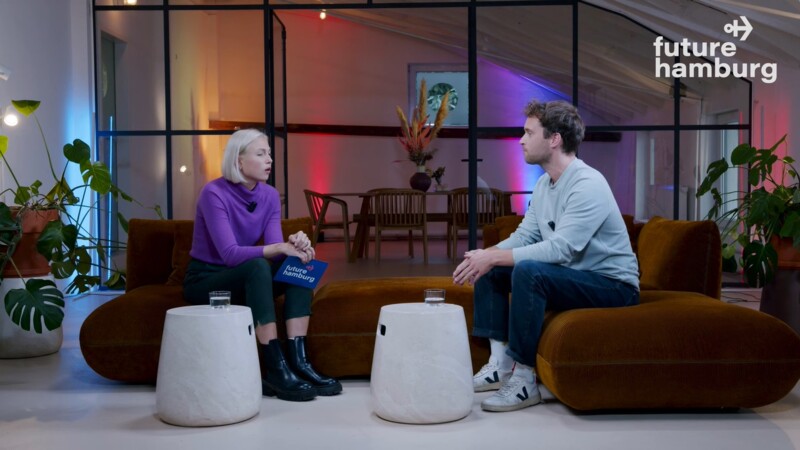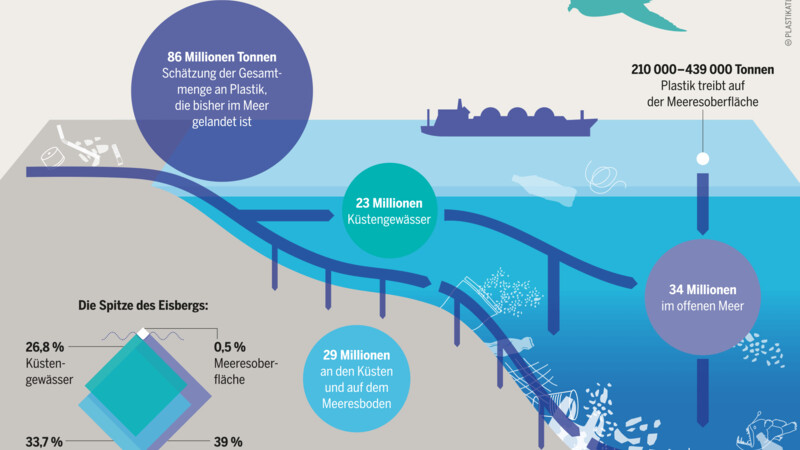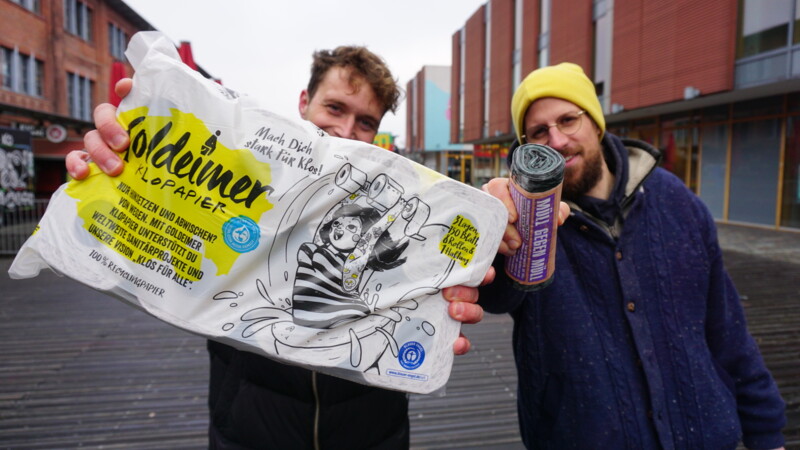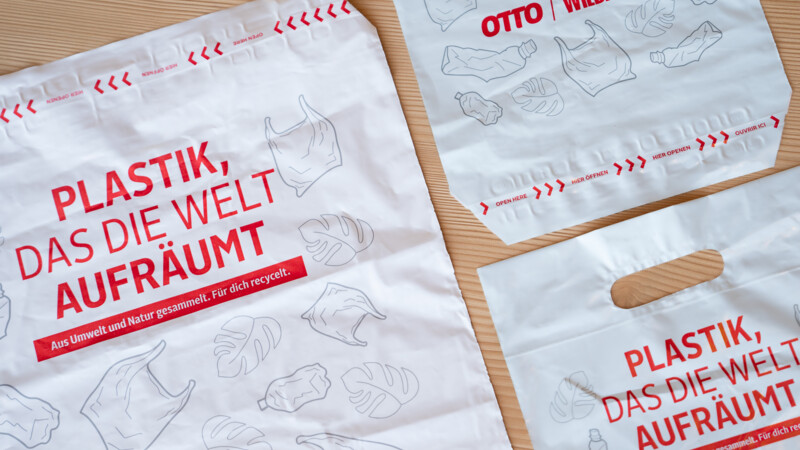Goldeimer’s material is likely to set new standards following the market launch. The company spent four years developing its product, followed by tests and received positive customer feedback. It now hopes to increase the share of wild plastic returned to the recycling loop, according to Malte Schremmer, Managing Director of Goldeimer. Wildplastic is not limiting itself to supermarket shelves and is collaborating with Hamburg’s Otto Group to replace conventional plastic-shipping bags with "wild bags".
The Hamburg-based non-profit Goldeimer and Wildplastic are making toilet-paper packaging made of 50 per cent "wild plastic" available on supermarket shelves, a press release said in March. Around 390 million tonnes of plastic were produced in 2021, according to Plastics Europe. To reduce the mounds of unrecycled waste, Wildplastic collects plastic on illegal rubbish sites in e.g., India, Thailand and Senegal and turns it into a sustainable packaging alternative.
Increasing share of wild plastic
Co-operating on social and ecological impact
“Complex crises require several ideas, perspectives and, above all, collaborations," said Christian Sigmund, CEO of Wildplastic. The revenue should help Wildplastic focus even more on plastic waste collection in countries without functioning waste systems. Goldeimer is providing waterless, decentralized and cycle-oriented toilets to provide more people with sanitation as part of its commitment to improving living and working conditions.
fw/mm/pb
Sources and further information
More
Similar articles

Future Hamburg Talk meets Christian Sigmund, CEO of Wildplastic


